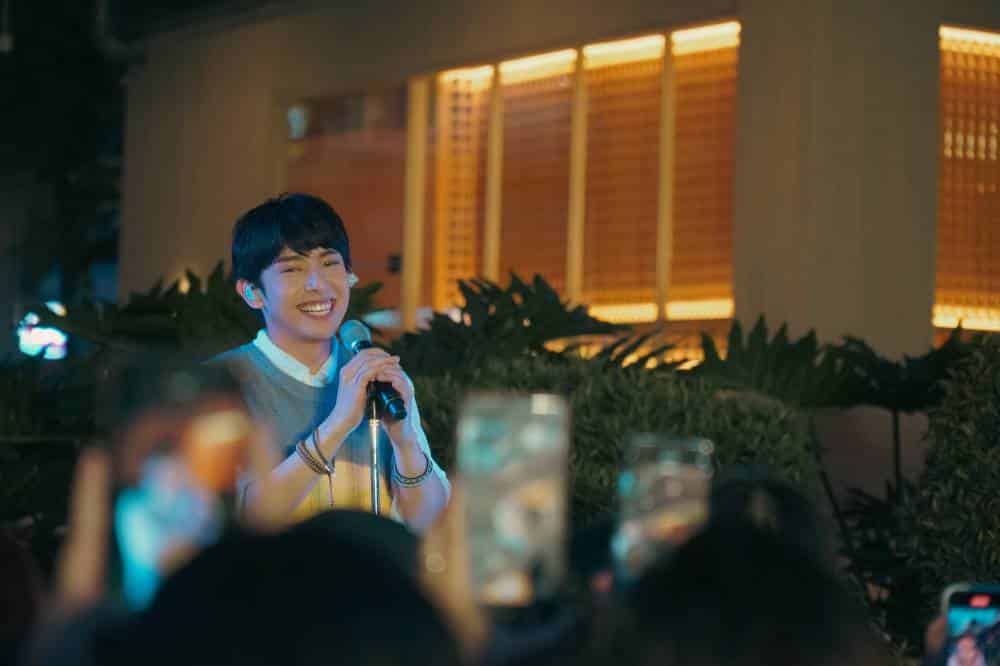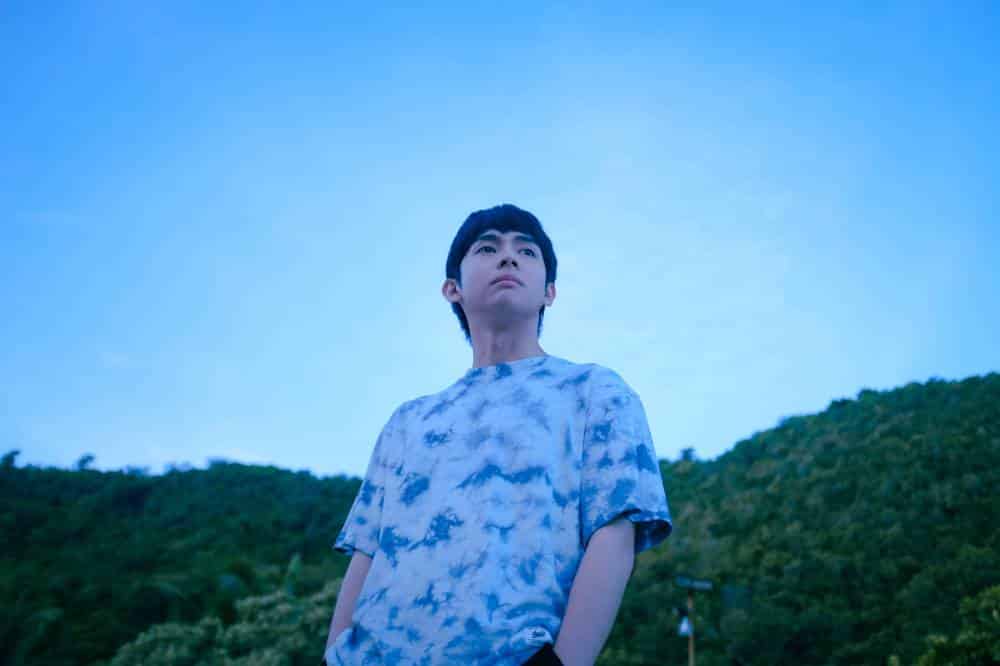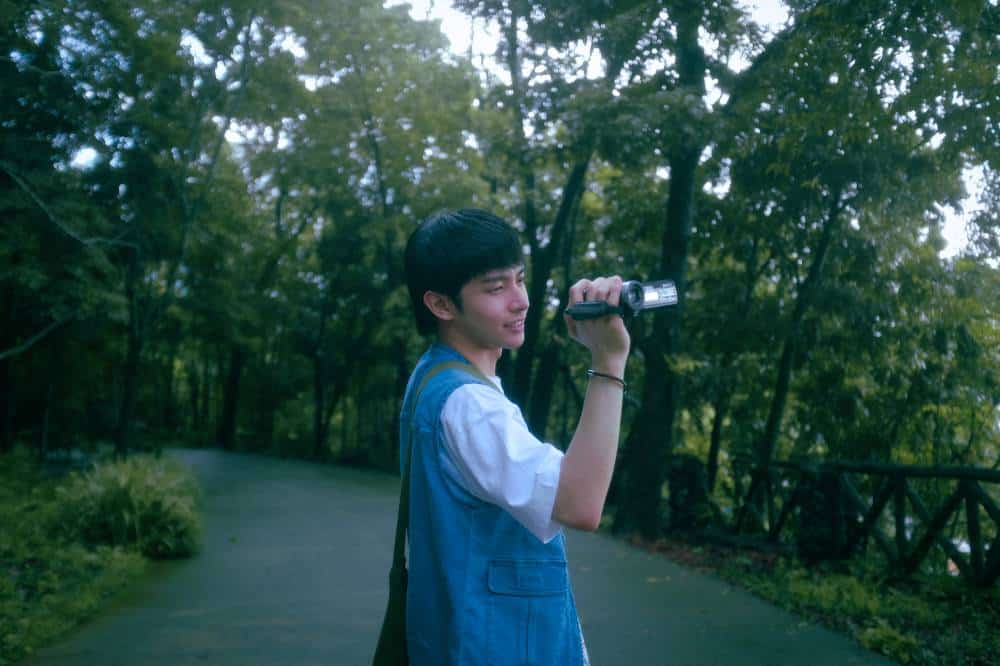Going solo inspires SB19’s Justin to think ‘outside the box’
In his first five years on the music scene, performing with a group was all Justin de Dios knew.
“I did mostly group activities. I’m not used to being by myself when it comes to performing, or taking on the technical aspects of music creation,” Justin, the youngest member of the pop boy band SB19, told Entertainment in a one-on-one interview.
There is, after all, a sense of comfort in knowing that there are four equally passionate people who will always have your back. But growth and comfort can’t ride the same horse.
So, as daunting as he thought it was, Justin went ahead and pursued a solo career early this year under Sony Music Philippines. It turned out to be a much-needed push.
“When you’re onstage with a group, there are people who can make you feel secure. But when you’re alone, you have to do almost everything,” pointed out Justin, who released his debut single, the laid-back and dreamy “Surreal,” last February.
Article continues after this advertisement“Going solo helped me as an artist. There has been a lot of development and growth,” the 26-year-old singer-songwriter added. “I learned new things that compelled me to step outside the box.”
Article continues after this advertisementCollaboration
He particularly enjoys picking up new ideas from collaborating with other artists. His performance with international hitmaker Dhruv last August, for instance, inspired him to rethink the way he puts together and presents his own live shows.
“After our collaboration, I was like, ‘Uy, ang ganda ng ginawa niya, singing with just a piano.’ That had me thinking, ‘Gusto ko rin ng ganun,’” said Justin, who’s now promoting his second single, “Kaibigan,” an emotionally escalating anthem on unrequited love produced by the Radkidz duo (SB19’s Pablo Nase and his brother, Josue).
In his very next engagement, a show in Baguio City, he sought to emulate what he had just seen. For the first time, Justin said, he sang with a fully live instrumentation.
“I wanted to try something similar to what Dhruv did. Usually, when I sing solo, I use an instrumental track. But that time, we tried doing it with a piano and a cello. It was my first time to experience something like that. Everything was totally live,” he said.
Justin knows that he still has a long way to go as a solo artist. But experiences like that were affirming and gave him a better picture of what he’s capable of and can be adept at in the future.
“It gave me confidence because it made me realize that I can do these new things. Dhruv was the first time I did a collaboration with another artist. ‘Uy, nagawa ko ‘yun!” he said.
“It may not have been perfect, but it’s something that I want to do again,” Justin added. “The experience tells me, ‘Kaya ko naman pala, eh!”
When you listen to “Surreal” and “Kaibigan,” can you say that you have already found the sound you want?
To be honest, not yet. As an artist, many will be able to relate when I say that there are a lot of things you want to do, other styles or sounds you want to try.
“Surreal” and “Kaibigan” were songs I wanted to do. But in the future, I would like do an acoustic piece, something with only a piano or a guitar as accompaniment.
Kind of the opposite of what you do with SB19.
Yes, it’s quite different from what I do as a solo artist. But if you notice, I think I’m almost there, because “Surreal” and “Kaibigan” are already on the quieter side. But I want something even quieter, something more stripped down.
Is it because you start writing your songs with a ukulele?
I just love the sound of it, like it’s lulling me to sleep!
Someone gifted me with a ukulele during the pandemic. I had a lot of time at home and there was nothing to do. I started playing with it and managed to naturally come up with songs using basic chords.
Is that how it also was with “Kaibigan”?
It was weird because, initially, “Kaibigan,” had happy-sounding chords. But what I was really trying to achieve was something sad. So Radkidz still had to help me develop it when we started to produce it.
I have written only a couple of songs so far, but yes, almost all of them were done with the ukulele.
Is the working dynamic with Pablo different as a producer?
It’s more or less the same—kami pa rin naman ‘yun.
The only difference was that I tried to take the lead, because it was my music we were working on. I’d tell him that “This is the sound I want.” I gave him pegs, told him about the songs I was listening to at the time. I wanted it to be dreamy.
He had a big input on the song, of course, with the experience he has. But he and Josue really followed the idea I had. And then, they developed the song from there.
As a group, Pablo who writes most of our songs typically already has the whole idea, and then we give our inputs. But here, it was the other way around.
You start screaming toward the end of the song. Whose idea was that?
There was none of that when I wrote it. There was no high belting, either. I gave the song to Pablo, and when he turned the demo over to me, I was like, “Uy, biglang may galit, ah!” It was amazing because it helped create a solid story for the song.
After the screaming part, it sounds like you’re just almost talking while sobbing.
That’s how the story unfolds: in the beginning, there’s still love despite all the doubts. But in end, you reach your breaking point and you get frustrated because you’re not getting answers to your questions. But when you finally hear the answer, it’s as if all your emotions come crashing down. Those parts gave the song a really nice dynamic.
How many takes did you have to do for that part?
We had to do it last. Nakakapaos talaga siya. Personally, I don’t scream. I’m often a quiet person. During my trainee days, I had to learn how to scream. But now I know how to project my voice. I have improved. I can be loud now!
We did two takes. After it was mixed and mastered, one of our staff members said, “It’s good because the screaming didn’t trigger me too much.” I was like, “Ay, mali, dapat ma-trigger siya!” And I did realize later on that my first take didn’t quite reach the emotions that it needed to hit.
To me, the first take gave off only frustration. So I thought it would be better if I just went for it and started questioning things: “What is this you’re showing me? It doesn’t reflect the words you’re telling me right now!” So I re-recorded it and was satisfied with it.
Did it feel good letting all those emotions out?
I didn’t really feel like it was a release. Napagod ako!
But the satisfying thing about it was that it was like I was acting inside the recording booth. It was fun knowing that even if you’re just recording a song, you still have to act and imagine a story, so that listeners can fully visualize the story and feel the emotions you want to convey.
Is acting something you want incorporated into your music?
Aside from being a singer, I also want to act. And doing it in the “Kaibigan” music video was fulfilling for me. I ticked another item off my checklist.
You’re very hands-on with the concept and narrative of your music videos.
Before launching my career as a solo artist, I had to figure out what I wanted to do with my music and how I wanted things to happen. I figured, “Why not create full narratives and tell them through the songs I’m going to release?”
You’re also very particular with the music video’s aesthetic.
“Surreal” was more of cottagecore, dreamy… it has more greens. “Kaibigan” has more blues… it’s youthful and has a coming-of-age film vibe, with the barkada trip and all. SB19 concepts are typically dark. But I’m more into pastels, subtle lighting and desaturated colors.
Any favorite films that inspire your visual taste?
It’s not just about the visuals, but the whole story, emotions, the whole content… but I like the film “Bridge to Terabithia” and the drama series “Anne with an E.”
In the future, I want to do something with a more dystopian vibe, but not dark, if that makes sense… something like “The Hunger Games,” “Divergent” and “The Maze Runner.” But I have a lot more favorites!


